May 15, 2025 | 03:37 GMT +7
May 15, 2025 | 03:37 GMT +7
Hotline: 0913.378.918
May 15, 2025 | 03:37 GMT +7
Hotline: 0913.378.918
This working session is part of the working program in Vietnam of the delegation of the Ministry of Agriculture of the Philippines, along with other activities such as: visiting the model of 1 million hectares of high-quality, low-emission rice in the Mekong Delta and the circular agricultural economic model; holding talks with the Minister of Agriculture and Rural Development of Vietnam on promoting bilateral cooperation in the fields of agriculture, food security and sustainable development; promoting agricultural trade and connecting businesses of the two countries.
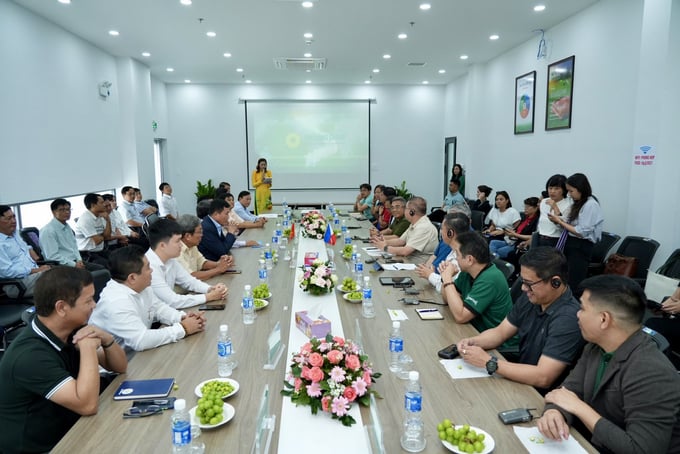
The Secretary of the Department of Agriculture of the Philippines, Mr. Francisco P.Tiu Lauren Jr. met with Tan Long Group on July 7 in An Giang.
Attending the working session on the afternoon of July 7 with Tan Long Group, Mr. Francisco said he was very impressed with Tan Long's journey of more than 20 years of multi-industry development, especially the scale and technology being applied Hanh Phuc Rice Mill.
"Currently, the average population growth rate in the Philippines is 1.5%/year, equivalent to an increase of about 1.2 million people. Thus, the demand for rice will also increase.
Although the Philippines has been investing and expanding domestic rice production, the import demand, including imports from Vietnam, is still huge.
Therefore, we hope to cooperate effectively with Tan Long Group and with Vietnam in the coming time to ensure a stable, long-term supply of high-quality rice," Mr. Francisco shared.
At the meeting, Mr. Truong Sy Ba, Chairman of the Board of Directors of Tan Long Group, also expressed his great honor when the Group had the opportunity to welcome Minister Francisco and the high-level delegation to visit the rice milling and processing facility built by Tan Long.
This is also a motivation for Tan Long to make more efforts to develop rice and contribute to the overall development of Vietnam's agriculture.
According to Mr. Truong Sy Ba, although Vietnam has many great advantages to developing agriculture, the issues of logistics, processing, and drying after harvest are still limited, the rate of post-harvest loss is still high, and the connection with farmers for production in raw material areas is still not really tight.
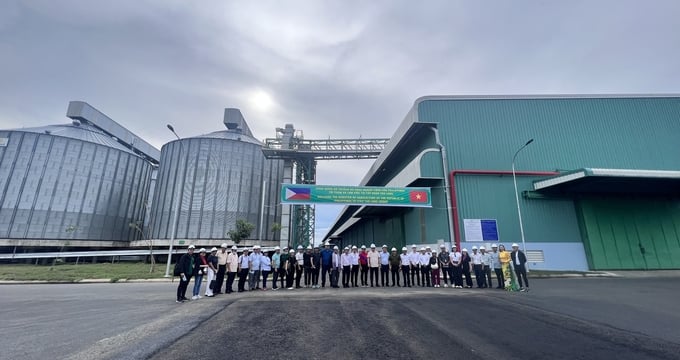
The delegation visited Hanh Phuc Rice Mill.
This leads to the fact that every time the harvest season peaks, fresh rice after harvest has not yet been transported to factories for processing during the "golden time" (8-10 hours after harvest). As a result, many rice varieties after harvest, when brought to the factory, do not retain their characteristics; the finished rice is of reduced quality, and the value is not high.
"As a leading rice producer, distributor, and exporter in Vietnam and participating in the Project "Sustainable development of 1 million hectares of high-quality rice in the Mekong Delta by 2030", Tan Long Group focuses on investing in modern infrastructure to overcome the problem of post-harvest processing and preservation, reduce post-harvest losses, and improve the quality and value of rice grains.
Hanh Phuc Rice Mill is a project with such a mission. At the same time, we will also focus on applying low-emission production measures according to international standards to contribute to reducing rice industry emissions, improving the Vietnamese economy's resilience to economic and climate impacts, and increasing farmers' income," Mr. Truong Sy Ba added.
Also participating in the delegation were representatives of the Ministry of Agriculture and Rural Development; Departments and branches of An Giang province and the People's Committee of Tri Ton district.
Mr. Ho Thanh Binh, Deputy Director of the Department of Agriculture and Rural Development of An Giang province, also shared with the delegation the strengths of the province's agricultural production, especially rice production.
An Giang province said that it is promoting the transformation of agricultural production towards meeting market demand, high quality and environmental friendliness. The province also expressed its desire to continue receiving the attention and cooperation of the Philippines in the fields of agriculture and agribusiness in the coming time.
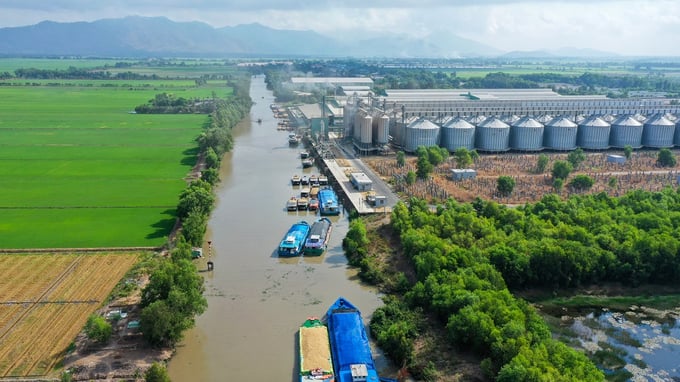
Hanh Phuc Rice Mill is located in the key rice growing area of the Mekong Delta.
Minister Francisco and the delegation of the Philippine Department of Agriculture then visited the production area at Hanh Phuc Rice Mill before concluding the working trip in An Giang on the afternoon of July 7.
Hanh Phuc Rice Mill, invested and built by Tan Long Group, is located in Luong An Tra commune, Tri Ton district, An Giang province; bordering Kien Giang, Dong Thap and Can Tho provinces. The total output of the 4 provinces reaches 13.3 million tons per year, accounting for over 33% of the national output and over 61.3% of the area under the 1 million hectares of high-quality, low-emission rice project of the Vietnamese Government.
Hanh Phuc Rice MIll focuses on practicing "Good from the beginning" production with optimal drying - storage - milling lines and equipment, modern technology. The maximum operating capacity at the factory reaches: Drying capacity: 4,000 tons per day; Storage capacity: 240,000 tons/80 silos; Milling capacity: 3,200 tons of dry rice per day; Packaging capacity: 2,000 tons per day.
With the above design capacity and synchronous investment in production lines and technology, Hanh Phuc Rice Mill is considered the largest and most modern factory in Vietnam today.
Translated by Huong Giang
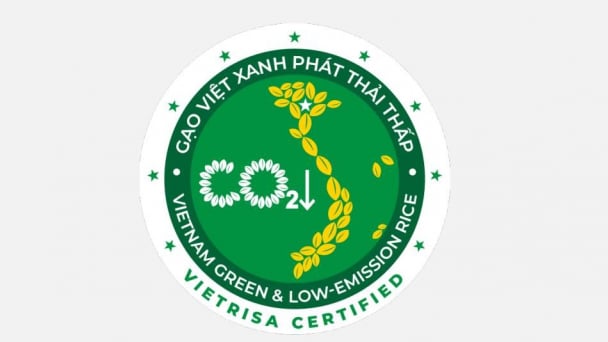
(VAN) The launch of the Vietnam green and low-emission rice brand is a positive signal for both businesses and farmers, marking readiness to reach new heights in the global market.

(VAN) The U.S. tariff will have a significant impact on Vietnam’s wood industry as well as the U.S. furniture market. A reasonable tariff rate would be beneficial for both sides.
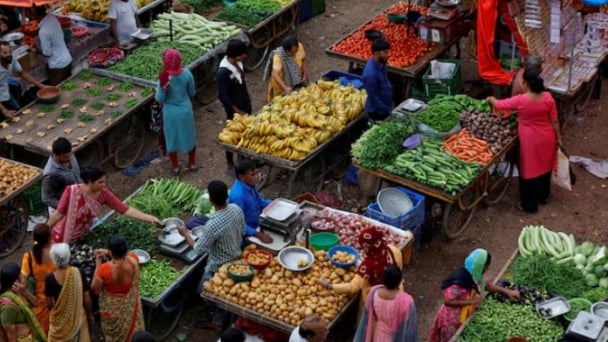
(VAN) India's retail inflation remained below the central bank's 4% target for the third consecutive month as food prices rose at a slower pace, opening up room for more interest rate cuts.
![Multi-channel, multi-directional Vietnamese agricultural markets: [5] Safety is the key](https://t.ex-cdn.com/nongnghiepmoitruong.vn/608w/files/linhnhp/2025/05/13/trai-cay-viet-nam-170345_133-221148-0908330.jpg)
(VAN) The Middle Eastern market presents new opportunities for Vietnamese agricultural products, but safety in product quality, payment, and partnership relations is a fundamental principle.
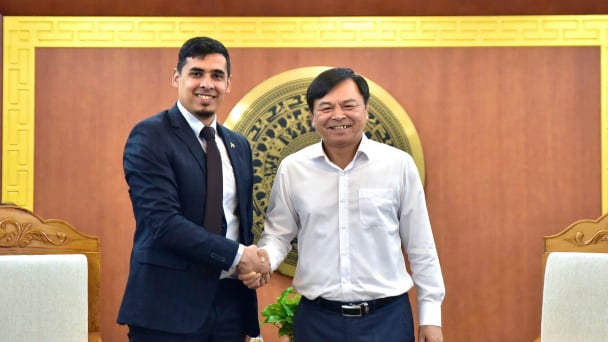
(VAN) Vietnam's participation in the AGROALBA project helps open up broader investment opportunities for enterprises to access markets in the fields of agriculture.
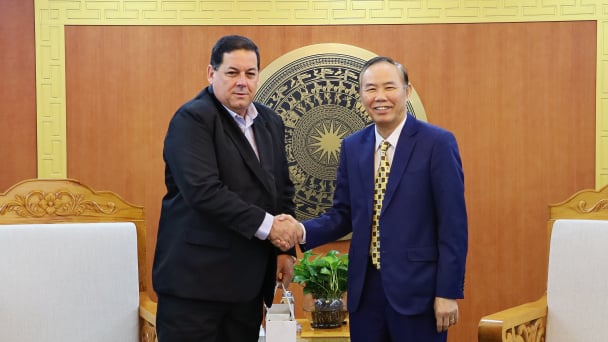
(VAN) On May 13, Deputy Minister of Agriculture and Environment Phung Duc Tien held a meeting with Cuban Deputy Minister of the Food Industry Javier Francisco Agular Rodriguez.
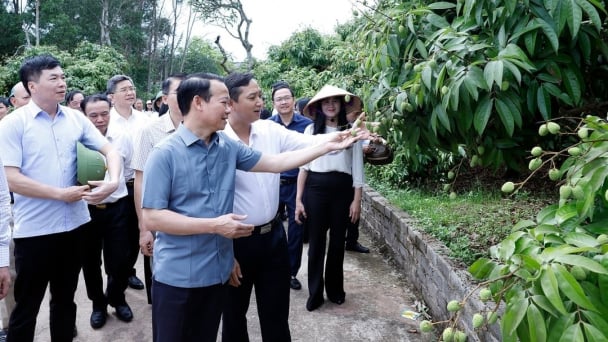
(VAN) Agriculture and environment sector experienced a 3.74% increase in growth during the first four months of 2025, with exports surpassing 21 billion USD. This growth was sustained by effective reforms and a trade surplus.